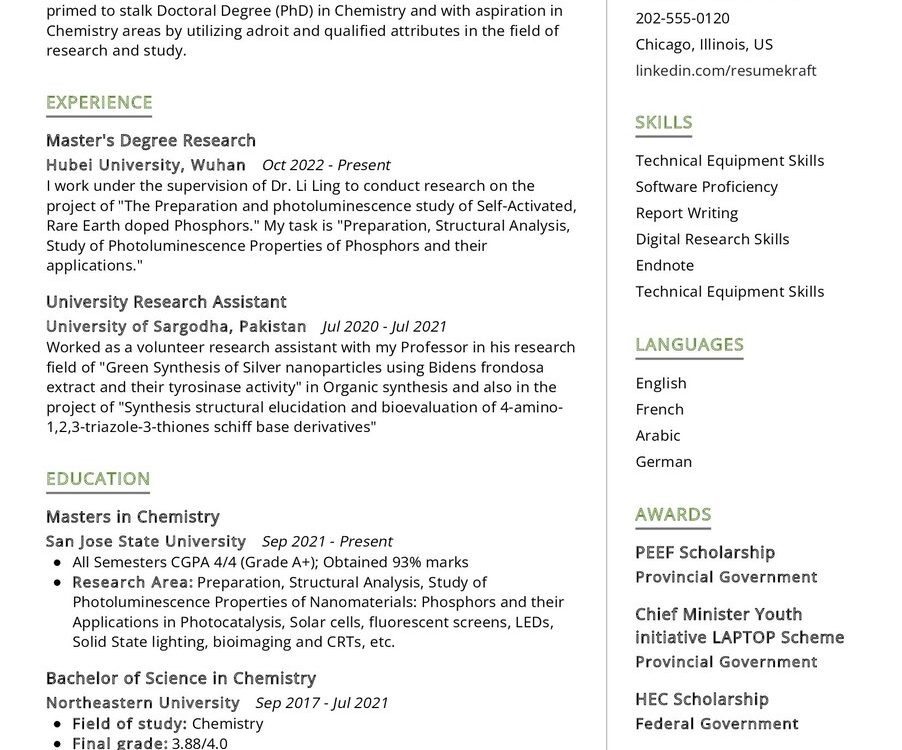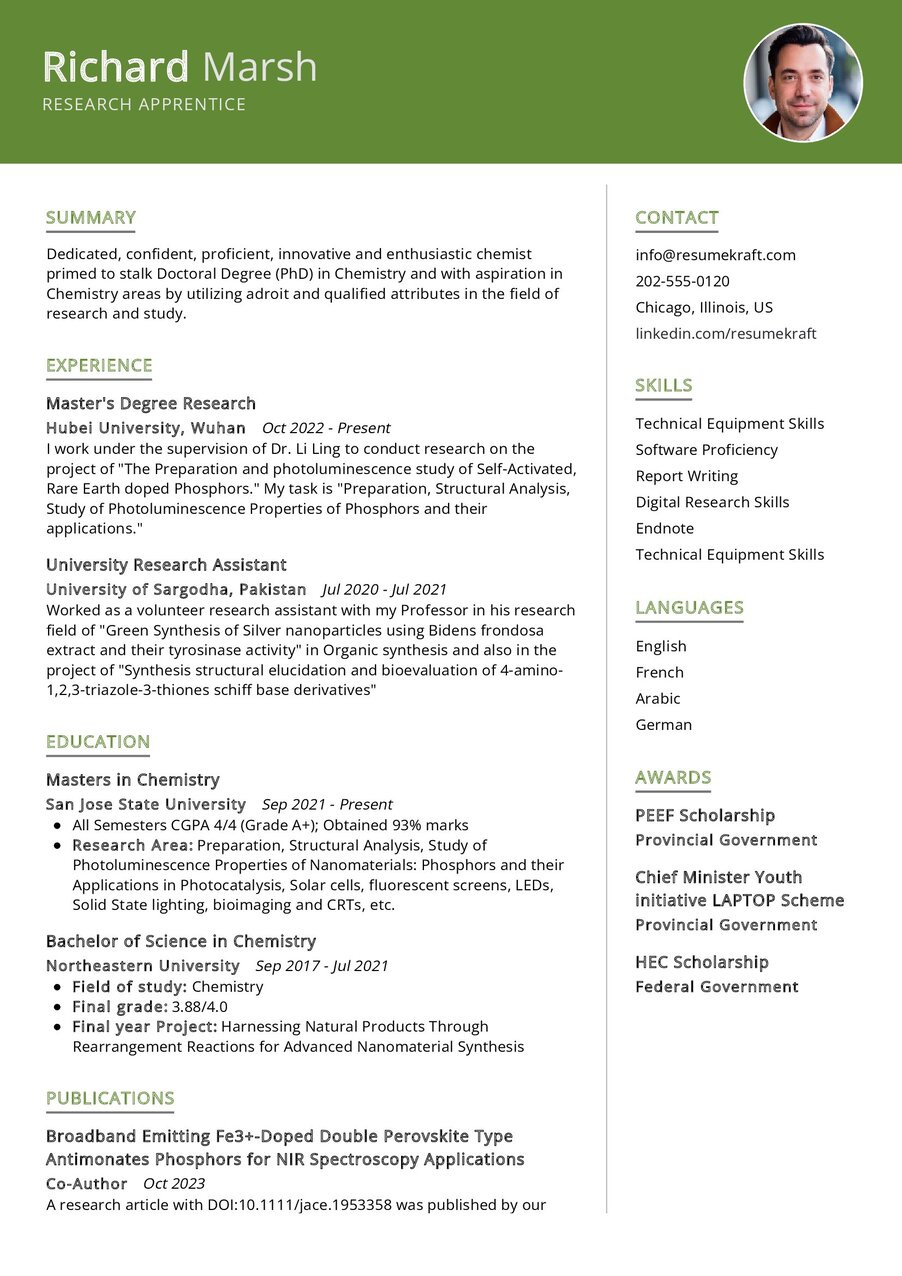Exploring the Role of a Research Apprentice
As the world of research continues to unfold, the position of a Research Apprentice plays a crucial role in contributing to scientific discovery and knowledge expansion. This article delves into the multifaceted role of a Research Apprentice, combining a passion for learning with hands-on research experience.
Research Apprentice Job Requirements
Becoming a Research Apprentice involves meeting specific requirements, marking a journey that demands curiosity, dedication, and a commitment to academic growth. Let’s delve deeper into the prerequisites that set the foundation for a rewarding career as a Research Apprentice:
- A Bachelor’s or Master’s degree in a relevant field such as Biology, Chemistry, Physics, or a related scientific discipline, showcasing a solid foundation in the chosen domain.
- Demonstrated knowledge of research methodologies and data analysis techniques, acquired through coursework or practical experience.
- Strong communication skills to effectively convey research findings through written reports and presentations.
- Experience in laboratory work or field research, showcasing a hands-on approach to scientific exploration.
- An inquisitive mindset and the ability to collaborate with senior researchers and fellow apprentices in a team-oriented environment.
- Proficiency in relevant scientific software and tools, a skill set vital for data collection and analysis.
- Attention to detail and analytical thinking, crucial for drawing meaningful conclusions from research data.
Continued professional development and acquiring additional certifications in specific research methodologies can further enhance your profile in this competitive field.
Responsibilities of a Research Apprentice
The role of a Research Apprentice is a dynamic mix of learning, contributing, and supporting the research team. Let’s unravel the key responsibilities that define this role, each contributing to the advancement of scientific knowledge:
- Assisting senior researchers in designing and conducting experiments, providing valuable support in data collection and analysis.
- Contributing to literature reviews, staying abreast of current research developments in the field.
- Collaborating with team members to draft research papers, showcasing effective communication skills and a grasp of scientific writing.
- Attending scientific conferences and workshops to broaden knowledge and network with professionals in the field.
- Participating in the development and implementation of research protocols, ensuring adherence to ethical guidelines.
- Maintaining accurate records of experiments and findings, a crucial aspect of ensuring the reproducibility of research.
- Engaging in continuous learning, taking advantage of opportunities to expand expertise in specialized research areas.
Each responsibility presents a unique opportunity for growth, learning, and making a meaningful impact on the scientific community.
Research Apprentice CV Writing Tips
Crafting a CV as a Research Apprentice is a vital step in showcasing your skills and experiences effectively. Here are some tips to help you create a compelling CV that stands out in the competitive world of research:
- Highlight your academic achievements, emphasizing relevant coursework and research projects.
- Detail any publications, conference presentations, or posters, showcasing your contributions to the scientific community.
- Include specific examples of your involvement in experimental design, data collection, and analysis.
- Emphasize any specialized skills or techniques you have acquired during your research apprenticeship.
- Showcase your ability to work collaboratively by highlighting any team projects or group research efforts.
Your CV is a reflection of your academic journey, so make sure to present it in a clear and compelling manner.
Research Apprentice CV Summary Examples
Your CV summary serves as an introduction to your academic and research journey. Here are some examples to inspire you:
- “Research Apprentice with a Bachelor’s degree in Biology, passionate about molecular biology research and contributing to groundbreaking discoveries.”
- “Dedicated Research Apprentice with hands-on experience in environmental science research, committed to advancing sustainability through scientific inquiry.”
- “Detail-oriented Research Apprentice with a Master’s degree in Chemistry, skilled in experimental design and data analysis for pharmaceutical research.”
Your CV summary is an opportunity to make a strong first impression, so tailor it to highlight your unique strengths and aspirations.
Create a Strong Experience Section for Your Research Apprentice CV
Your experience section is the core of your CV, allowing you to showcase the practical application of your academic knowledge. Here are some examples to guide you:
- “Collaborated with a team of researchers on a groundbreaking project exploring the genetic basis of rare diseases, contributing to a published research paper in a peer-reviewed journal.”
- “Designed and conducted experiments to investigate the impact of climate change on local flora, presenting findings at a regional environmental science conference.”
- “Assisted in the development of a novel drug delivery system, gaining expertise in laboratory techniques and contributing to the patent application process.”
Your experience section is an opportunity to showcase the practical skills and contributions you bring to the research team.
Sample Education Section for Your Research Apprentice CV
Your educational journey forms the foundation of your research career. Here’s how you can present your academic milestones:
- Master of Science in Chemistry, XYZ University, 2021.
- Bachelor of Science in Biology, ABC University, 2018.
- Certification in Advanced Research Methods, Research Institute, 2019.
Each educational qualification is a stepping stone, contributing to your expertise as a research professional.
Research Apprentice Skills for Your CV
Your skill set is your toolkit, equipped with a diverse range of tools honed through academic pursuits and hands-on research. Let’s list down the essential skills that a Research Apprentice should possess:
Soft Skills:
- Curiosity and a passion for continuous learning, essential for staying abreast of advancements in the field.
- Effective communication and collaboration, crucial for working harmoniously in a research team.
- Attention to detail and analytical thinking, key for precision in experimental design and data analysis.
- Adaptability and resilience, necessary for navigating the challenges inherent in research projects.
Hard Skills:
- Proficiency in scientific writing, showcasing the ability to convey research findings clearly and concisely.
- Hands-on experience with laboratory techniques and equipment relevant to your field of study.
- Knowledge of statistical analysis software, vital for drawing meaningful conclusions from research data.
- Understanding of ethical guidelines in research, ensuring the responsible conduct of scientific inquiry.
Each skill is a tool, contributing to your effectiveness as a Research Apprentice in the scientific community.
Common Mistakes to Avoid When Writing a Research Apprentice CV
As you craft your CV, steer clear of common pitfalls that can impact your chances in the competitive world of research. Here are some mistakes to avoid:
- Avoid generic language; instead, tailor your CV to highlight your unique contributions and skills.
- Don’t simply list your duties; provide specific examples of your achievements and contributions to research projects.
- Include a cover letter to complement your CV, offering insights into your motivation and aspirations as a Research Apprentice.
- Avoid jargon overload; ensure that your CV is accessible to both scientific and non-scientific audiences.
- Proofread your CV thoroughly to maintain a polished and professional image.
Avoiding these mistakes will help you create a CV that truly reflects your potential as a valuable member of the research community.
Key Takeaways for Your Research Apprentice CV
As we conclude this comprehensive guide, remember these key points while crafting your Research Apprentice CV:
- Highlight your academic achievements and research projects to showcase your expertise.
- Emphasize your practical skills gained through hands-on research experience.
- Use specific examples in your CV to demonstrate your contributions to research projects and scientific advancements.
- Include a well-crafted CV summary to make a strong first impression on potential employers.
Finally, feel free to utilize resources like AI CV Builder, CV Design, CV Samples, CV Examples, CV Skills, CV Help, CV Synonyms, and Job Responsibilities to create a standout application and prepare for the Research Apprentice job interview.
Armed with these insights and tips, you are now ready to craft a CV that is a true reflection of your academic journey, your skills, and your aspirations. Remember, your CV is not just a document; it is a canvas where you paint your career story, a story of growth, learning, and contribution to the world of research. Best of luck!


